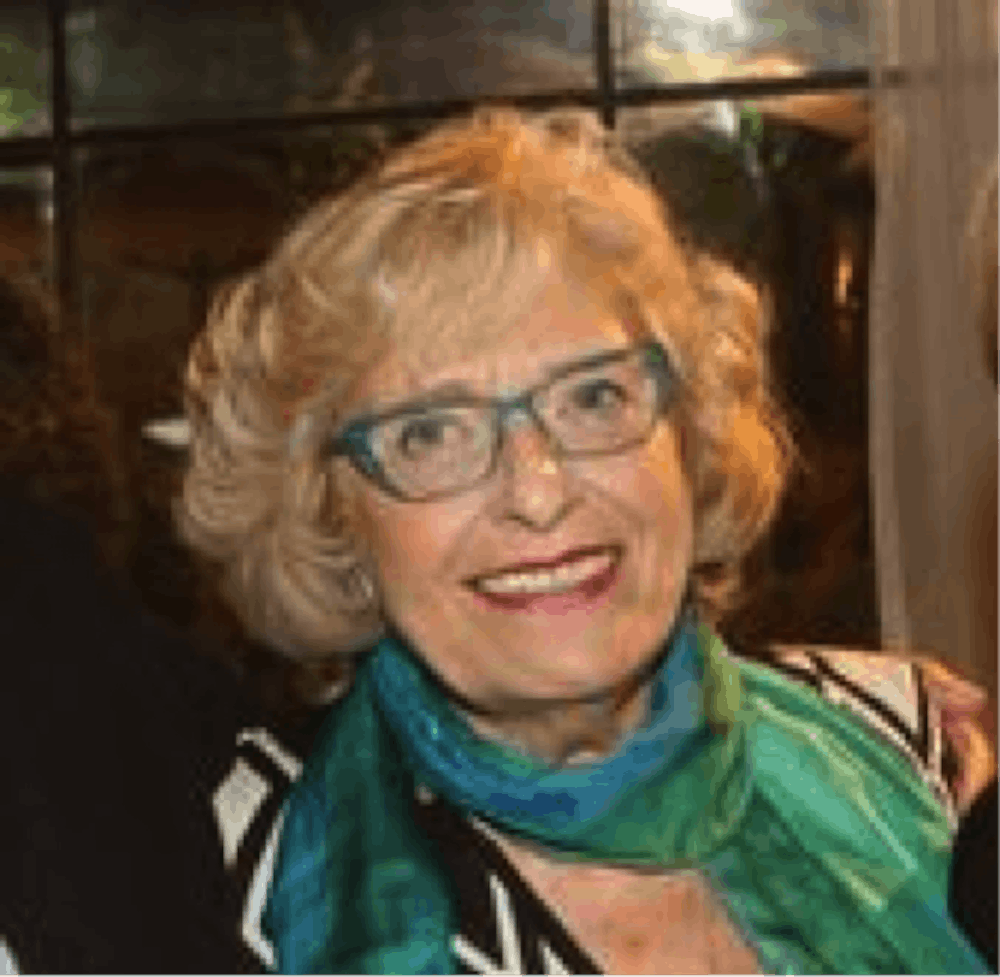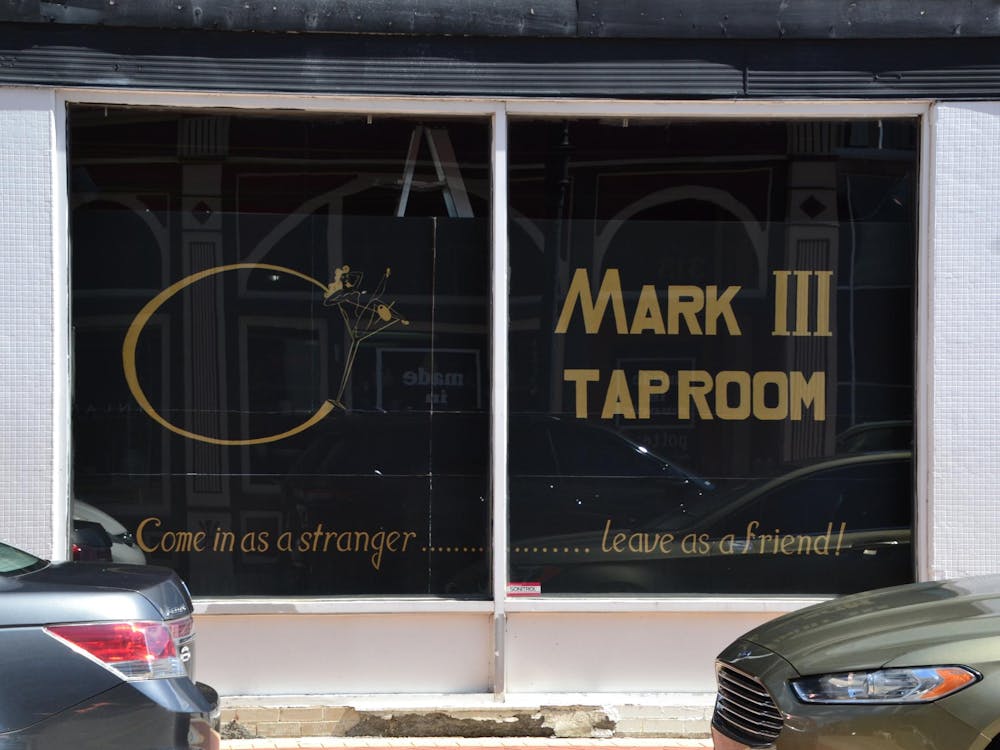 |
|---|
Holocaust survivor Martha Raviv addressed her gathered audience with a thick, Hebrew accent.
“In order to tell you my story, I have to tell you the origin,” she said.
Raviv spoke in Art and Journalism Building Room 175 April 14 as part of Ball State’s annual Yom Hashoa , or Holocaust Remembrance Day event. She talked about murder, persecution and hunger, but she also stressed the phoenix, the symbol of renewal and the inspiration for the name of her speech: “The Story of the Phoenix.”
Raviv said she speaks about her experiences for two reasons: to express her thanks to the American Army and to do the same for a young Jewish officer who gave her a Mezuzah, a Jewish pendant. He told her it would protect her and keep evil away.
Raviv needed that talisman. Her whole family did.
Her family originally came from Galicia, an area that now stretches between Poland and Ukraine. During Operation Barbarossa on June 22, 1941, Nazis murdered most of her family, except for her grandfather. He was spared because he ran a leather factory for the use of the German Army.
“Once they knew how to do these things themselves, he was also murdered,” she said.
Nazi Germany annexed, or took over, Austria on March 13, 1938. It was then that they enforced laws against the Jews- laws that included persecution, separation of families, loss of Jewish jobs and a curfew.
“I was born in a very good part of Vienna, the third district. When we were annexed, we were taken to the second district,” Raviv said.
The second district consisted mostly of Jewish ghettos.
Raviv closed her eyes, recalling hiding with her mother in their flat.
Raviv said everyone froze whenever a truck drove up and stopped outside the flat.
“You then heard the sound of the boots of the Nazis coming up the stairs to fetch us. That noise stays in your ears forever,” she said.
Raviv’s father was arrested for being Jewish on Sept. 9, 1939. Raviv was three years old at the time. He was then beaten, abused, and sent to two prisons and the Prater Stadium in Vienna, where “anthropological” research was conducted on him. Raviv said her father’s hair is still in a museum in Vienna.
In March1942, Raviv’s mother received her husband’s death certificate, stating he had died from a heart attack.
Over time, Raviv learned the truth—that he had been murdered in the gas chambers at Buchenwald.
Her family fractured even more after her mother made the difficult decision to send her sister, Cwetka, to Palestine alone. Raviv said it was easier for Jewish families to only have one child. If her sister had stayed, she would’ve been killed.
“I stayed with my mother in Vienna because my father did not want us to lose hope. If you don’t have hope, you cannot go on working very hard,” she said.
Later, Raviv and her mother ran away from their flat to live with their seamstress. Raviv owed her life to her seamstress’ dogs. Whenever someone rang the doorbell, she remembered the dogs barking very loudly, warning her and her mother to go and hide in the bathroom.
Raviv and her mother also hid in railway stations, but during September 1943, Raviv and her mother were imprisoned in Vienna.
“We were moved from prison to prison about eight times, and every time, my mother prayed we would not be taken to Auschwitz. If you were taken to Auschwitz, you were killed,” Raviv said.
Raviv and her mother were shuffled from Pankreaz in Prague, to Halle An Der Salle in Germany, to another German prison.
Raviv said the prisons they went to had both good and bad people in them.
“Within the Holocaust, there were also angels who were humane,” Raviv said.
They encountered a guard who gave them a sandwich and one who beat Raviv’s mother until her teeth fell out. Fellow inmates stole her mother’s scarf and others broke open a window on a train ride so they would not suffocate.
After Hildesheim, Raviv and her mother were put into a truck with other people and taken to Bergen-Belsen, a concentration camp.
Raviv said she looked through a small whole in the truck. The other passengers wanted to know what she could see outside.
Raviv lied to give them hope, and told them the view was beautiful and where they were going looked very nice.
Raviv also remembers being taken to the showers as a group.
“We were sure we would be gassed and we shouted, ‘God of Israel, hear us,’” she said.
They then heard the mocking laughter of the Nazis on the other side of the wall. There was no gas at Bergen-Belsen – it was all for the Nazis’ amusement.
Raviv and her mother were later transferred to Vittel Internment Camp and then onto a DP, or a Displaced Person camp, in France. It was there where they were finally liberated. The date was Sept. 12, 1944.
“Life in the DP camp was freedom,” Raviv said, smiling at the memory.
It was the beginning of Raviv’s time as a phoenix. She later moved to Israel where she still lives today with her sister, children and grandchildren.
Students who attended Raviv’s presentation appeared impacted by her words.
Heather Hines, a senior history major, said seeing Raviv was a great opportunity.
“Her story and her character now is what was so inspiring. She seems so loving," she said.
In her resurrected state, Raviv does love. She has practiced law for 50 years and works to help those in need in various ways.
“The only thing I want to say is to not allow yourself to be brainwashed,” she said. “Stay humane, love your neighbor and love yourself.”





